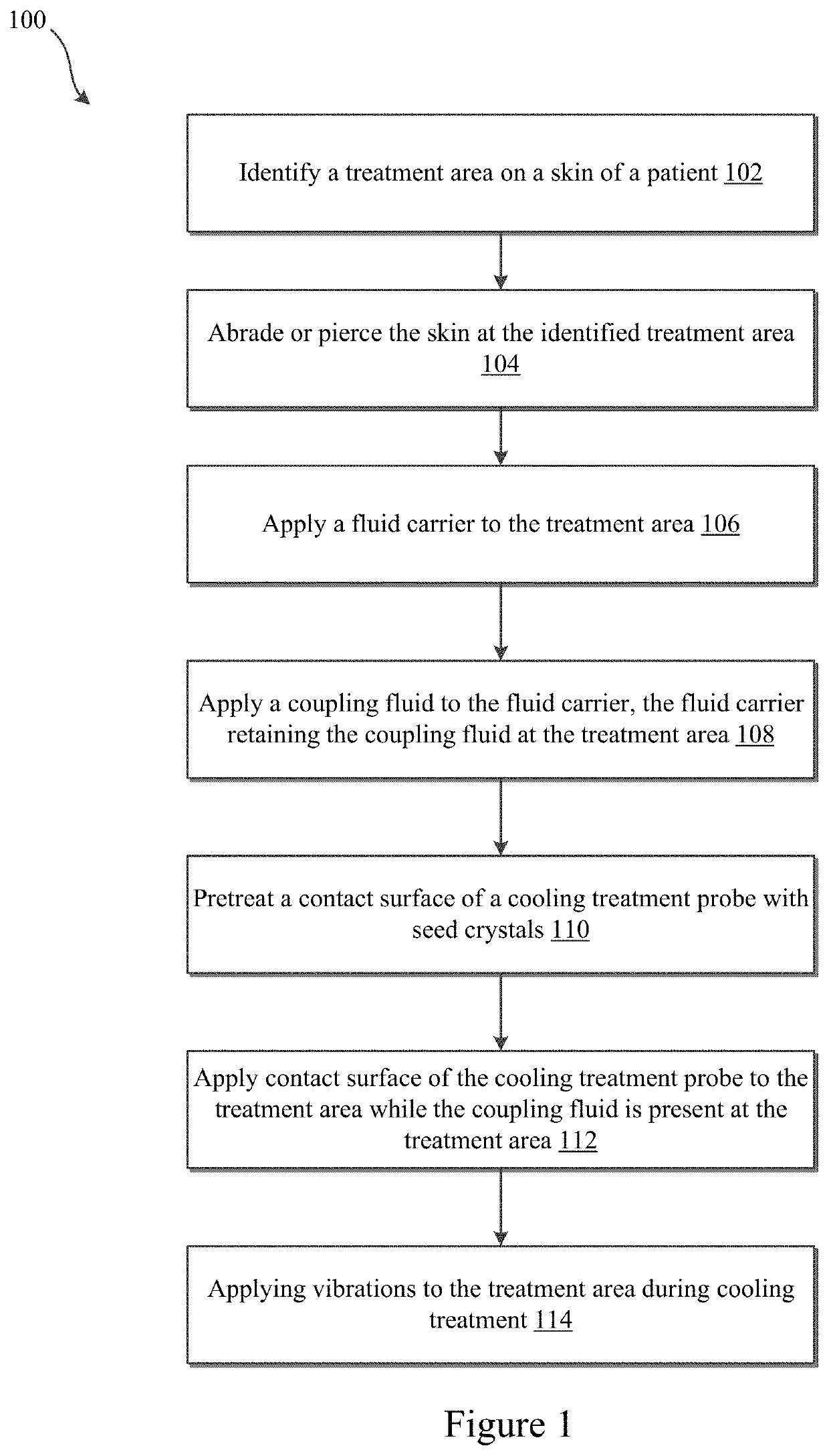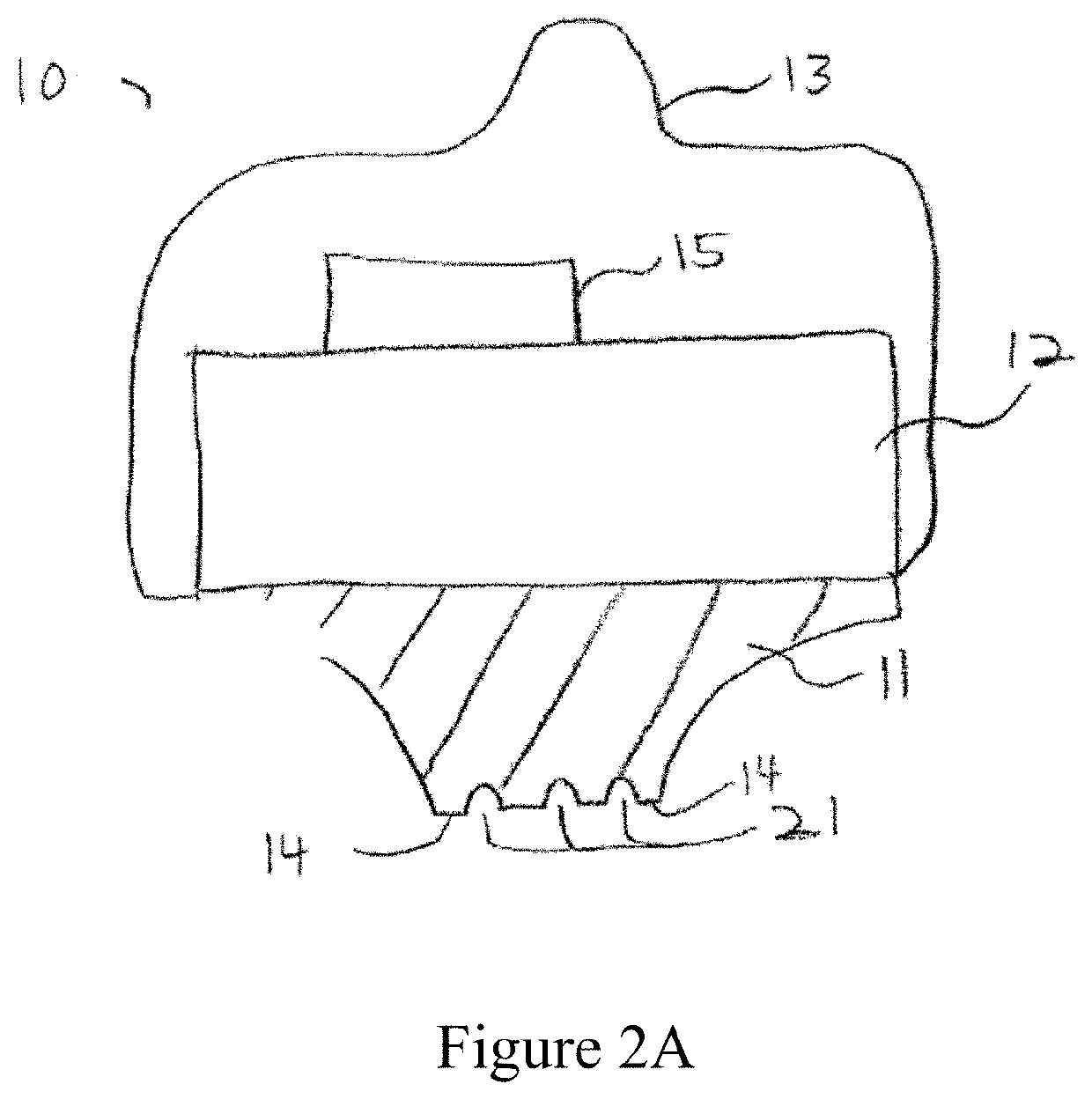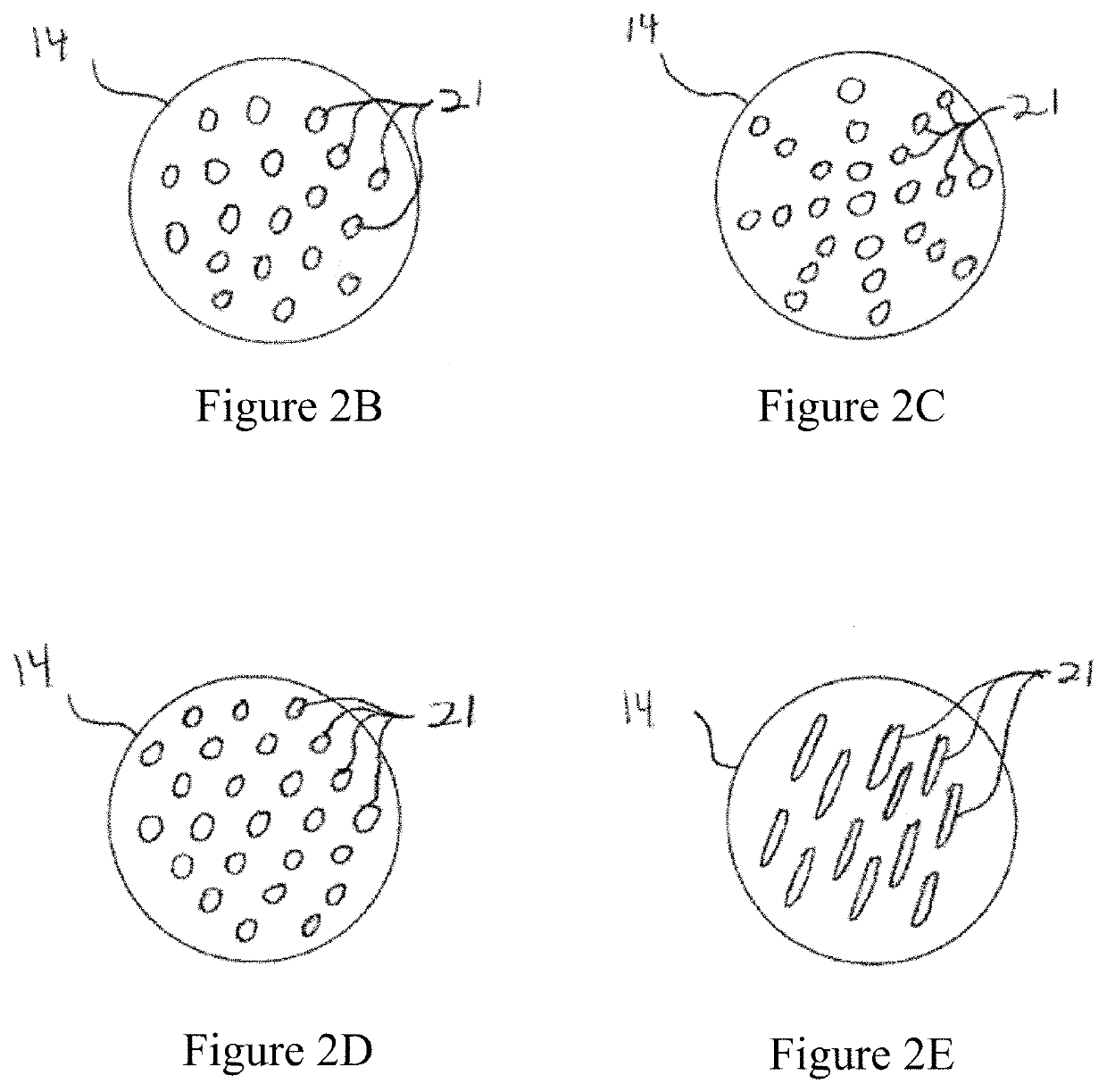Medical systems, methods, and devices for hypopigmentation cooling treatments
a technology for hypopigmentation and cooling treatment, applied in the field of medical systems, devices, and systems for reducing the pigmentation can solve the problems of severe tissue freezing, hyperpigmentation, and cellular damage, and achieve the effects of reducing thermal contact resistance, limiting supercooling, and promoting freezing of the skin of the patien
- Summary
- Abstract
- Description
- Claims
- Application Information
AI Technical Summary
Benefits of technology
Problems solved by technology
Method used
Image
Examples
Embodiment Construction
[0046]As set forth above, some embodiments of the present invention may be directed to techniques to affect melanocytes of a patient. For example, some embodiments may be directed to methods and systems for reducing skin pigmentation by cooling the skin of a patient. In some embodiments it may be beneficial to freeze the skin. Additionally, it may be advantageous to freeze the skin in a more controllable and consistent manner. The freezing event, although it may not be required, has been shown to have an effect on both the desired outcome of reduced pigmentation, but also the short term side effects of epidermal necrosis and in some cases prolonged erythema and hyperpigmentation. In previous studies, the timing of skin freezing has been found to be inconsistent. Different results (time to freezing, or lack of freezing) have been seen when replicates of the same treatment parameters are performed. Accordingly, some embodiments of the present invention provide increased control over t...
PUM
 Login to View More
Login to View More Abstract
Description
Claims
Application Information
 Login to View More
Login to View More - R&D
- Intellectual Property
- Life Sciences
- Materials
- Tech Scout
- Unparalleled Data Quality
- Higher Quality Content
- 60% Fewer Hallucinations
Browse by: Latest US Patents, China's latest patents, Technical Efficacy Thesaurus, Application Domain, Technology Topic, Popular Technical Reports.
© 2025 PatSnap. All rights reserved.Legal|Privacy policy|Modern Slavery Act Transparency Statement|Sitemap|About US| Contact US: help@patsnap.com



